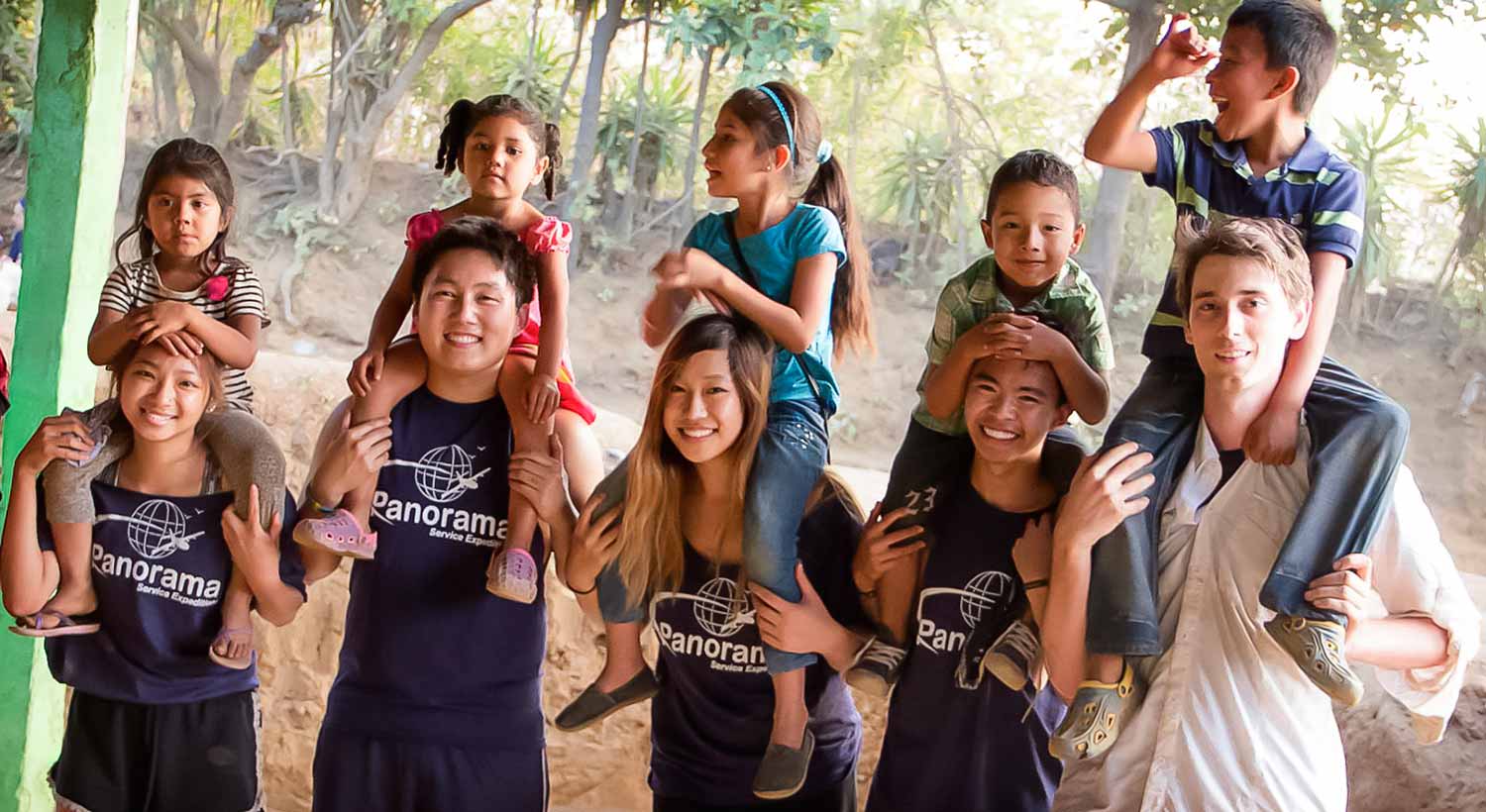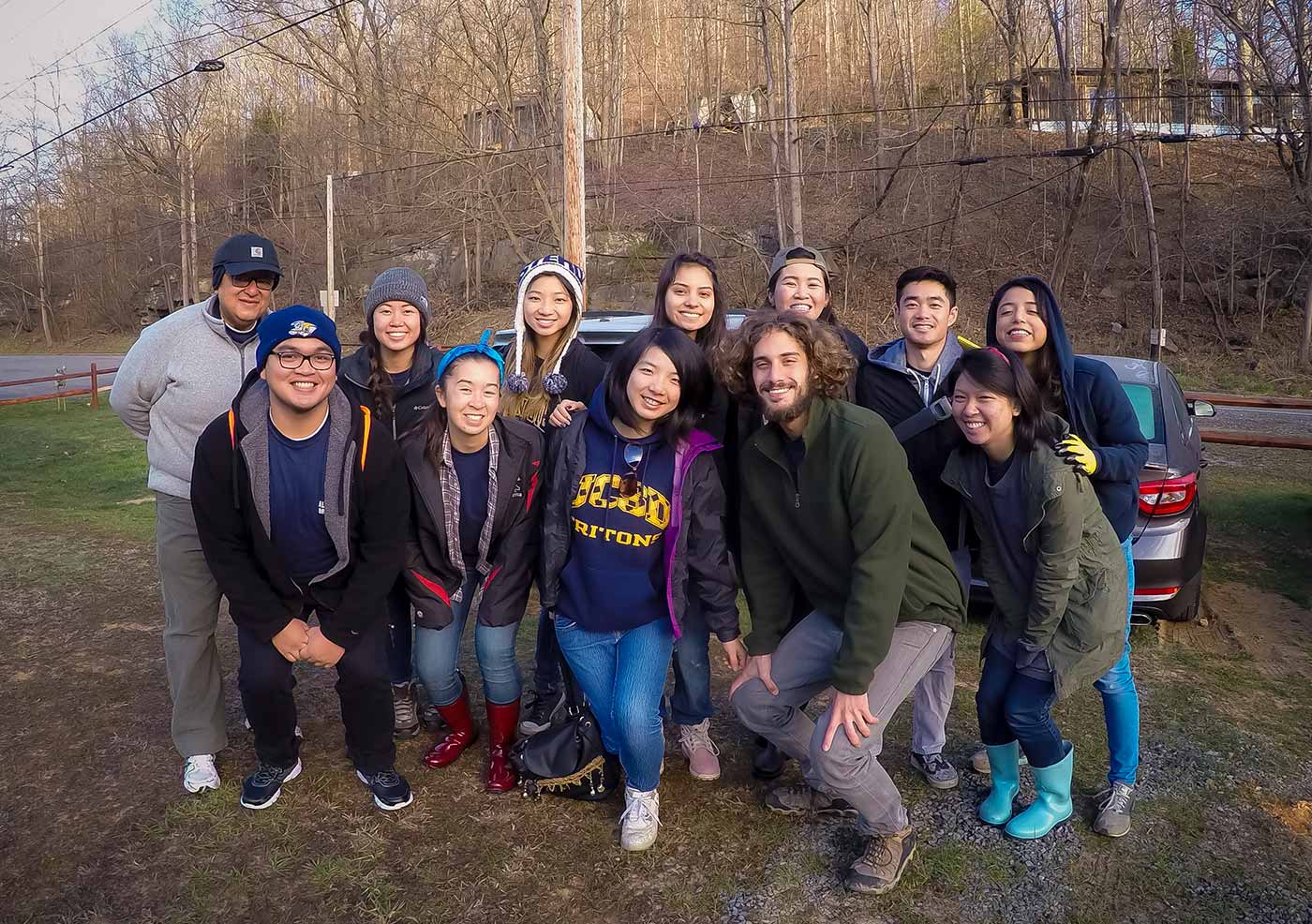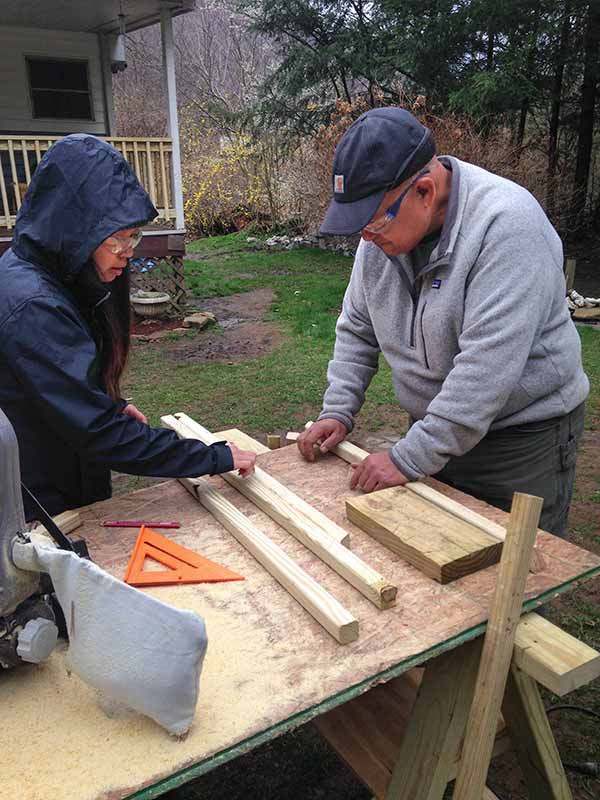
By:
- Jade Griffin
Published Date
By:
- Jade Griffin
Share This:

Alternative Breaks provides students with the opportunity to take service-learning trips over their class breaks
An ‘Alternative’ Path to Giving Back
Alumnus goes above and beyond to help support Alternative Breaks student service program
Several years ago, municipal law attorney Michael Estrada, ’79, would never have guessed that he would be digging ditches in Appalachia with a group of 18 to 23 year olds, but sometimes life takes you where you least expect it.
It all started when Estrada was diagnosed with throat cancer several years ago. “It made me look at all the things that affected my life, and UC San Diego was an important one,” he said.
While undergoing treatment, he read an issue of UC San Diego’s alumni magazine, Triton, which featured an article on a fellow alumnus who supports the university’s Alternative Breaks program. As part of Alternative Breaks, students are given the opportunity to embark on national and international service-learning trips as a meaningful way to give back to society. Student volunteers partner with a wide range of community-based nonprofits to help address social justice issues ranging from poverty to education to women’s rights.
“For years, I’d been looking for something to reconnect with at UC San Diego,” Estrada recalls. “Alternative Breaks sounded interesting, and I recognized that it was time to start doing things I had put off.”
With his cancer defeated, Estrada reached out to learn more about the program. He visited campus, where he met several program participants. “It was the notion of the students’ service that attracted me as a great thing,” said Estrada. “I was overwhelmed by the esprit de corps – the enthusiasm of the students for the program and the projects.”

Alumnus Michael Estrada (far left) with UC San Diego students in Appalachia
After three years of providing support to the program, Estrada recently established the Michael Estrada Alternative Breaks Scholarship Endowment with a gift of $50,000, to help ensure that students in need could participate in the program. He also designated the newly established endowment as a beneficiary of his estate. But the story doesn’t end there.
Project Appalachia
The Alternative Breaks team invited Estrada to participate as an alumni mentor for the program. He accepted the invitation. “I’ve always been impressed by the experiences and lessons learned shared by the students. I thought that I should maybe go and see it first hand,” recalled Estrada. “I was fortunate enough to be asked to join Project Appalachia.”
Scheduled over spring break of 2016, Alternative Breaks students partnered with the nonprofit Appalachia Service Project to provide volunteer service to those in need in Appalachia, a historically isolated mountain region of the United States that battles extreme poverty. The team would help provide relief for residents whose homes were in danger of flooding due to torrential rains and poor drainage systems. Or, as the students who emailed Estrada to prepare him for the trip simply put it, “ditch digging.”
“I was frankly a little concerned,” said Estrada. “I knew I would be spending time with people who are one third my age, and I have a fairly sedentary lifestyle as an attorney. I thought, ‘What am I doing digging ditches?’ ”

The group helped provide services to those in need in West Virginia
Little did Estrada know that at the same time, students were nervous to have a key program donor on their trip. Alana Young recalled, “To be honest, when I learned that ‘the’ Michael Estrada was coming on our trip, I was a little terrified. I felt like we were all so young and new to this. What if he hates the experience?”
The apprehension on both sides was short-lived. By all accounts, the trip was a smashing success. The team helped dig drainage ditches for a woman and her daughter whose mobile home was threatened by water draining from an adjacent mountain. The team was so efficient, that they finished early and went on to help with a carpentry project for another nearby family in need, as well.
“We all really appreciated having Mike there and hearing his perspective on things,” said Young. “He was extremely supportive and insightful. He took us under his wing.”
Together, the group reflected on their work and the issues of poverty and social inequality that they witnessed first-hand in Appalachia. They discussed life-lessons and how to pursue a satisfying career. They exchanged sweaters and jackets when their fellow “Breakers” were cold.
And they shared several bottles of hot sauce. “I knew what to expect in terms of what we were going to be eating,” said Estrada. “So before we got to our destination, I insisted that we pull over at a market. I ran in and bought a bottle of hot sauce. It made me very popular. We shared that bottle at every single meal and ended up buying a few others.”
According to Young, Estrada earned a new nickname—“Mike Cholula”—for his favorite brand of hot sauce. But more than a new moniker, Estrada gained an out-of-the-box life experience, one that would have never occurred had he not picked up that issue of Triton Magazine.
The campus is currently hosting a Crowdsurf campaign to provide funding for students to be able to attend an upcoming summer trip. Click here to make a gift. To learn more about Alternative Breaks, visit the website.
Share This:
You May Also Like
Stay in the Know
Keep up with all the latest from UC San Diego. Subscribe to the newsletter today.


